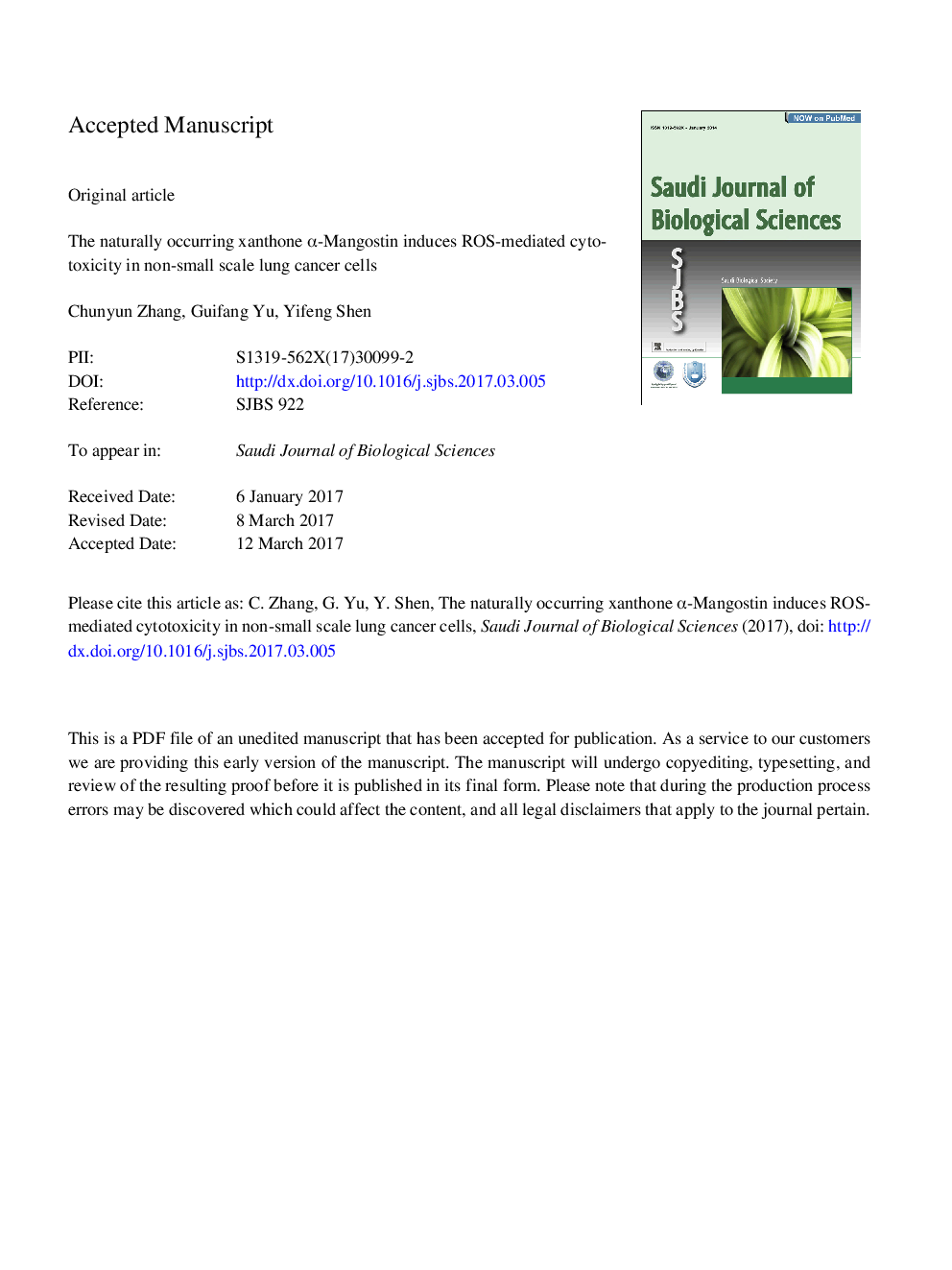| Article ID | Journal | Published Year | Pages | File Type |
|---|---|---|---|---|
| 8959272 | Saudi Journal of Biological Sciences | 2018 | 20 Pages |
Abstract
Small cell lung cancer (NSCLC) accounts for 85% of total deaths globally, and recent studies indicate the increasing risks of NSCLC in China and South Asian countries. Hence, development of new therapeutics against NSCLC has been a major concern. α-Mangostin, a naturally occurring xanthone, found abundantly in pericarps of mangosteen fruit is well known for its medicinal importance. The anticancer properties of α-mangostin against several types of cancer are also well documented. But the mechanism of action of α-mangostin against lung cancer is not well understood and requires further investigation. Therefore in the present study, we explored the therapeutic potential of α-mangostin against A549 cells. Treatment of A549 cells with α-mangostin resulted in a dose-dependent loss of cell viability, while the non-malignant cells such as hPBMC and WI-38 remained unaffected. Further we observed that the ROS plays an important role in α-mangostin -induced apoptosis in A549 cells, and administration of N-acetyl cysteine significantly abrogates α-mangostin -mediated cytotoxicity in lung cancer cells. Overall, α-mangostin induces ROS-mediated cytotoxicity in NSCLC cells.
Keywords
Related Topics
Life Sciences
Environmental Science
Ecology
Authors
Chunyun Zhang, Guifang Yu, Yifeng Shen,
